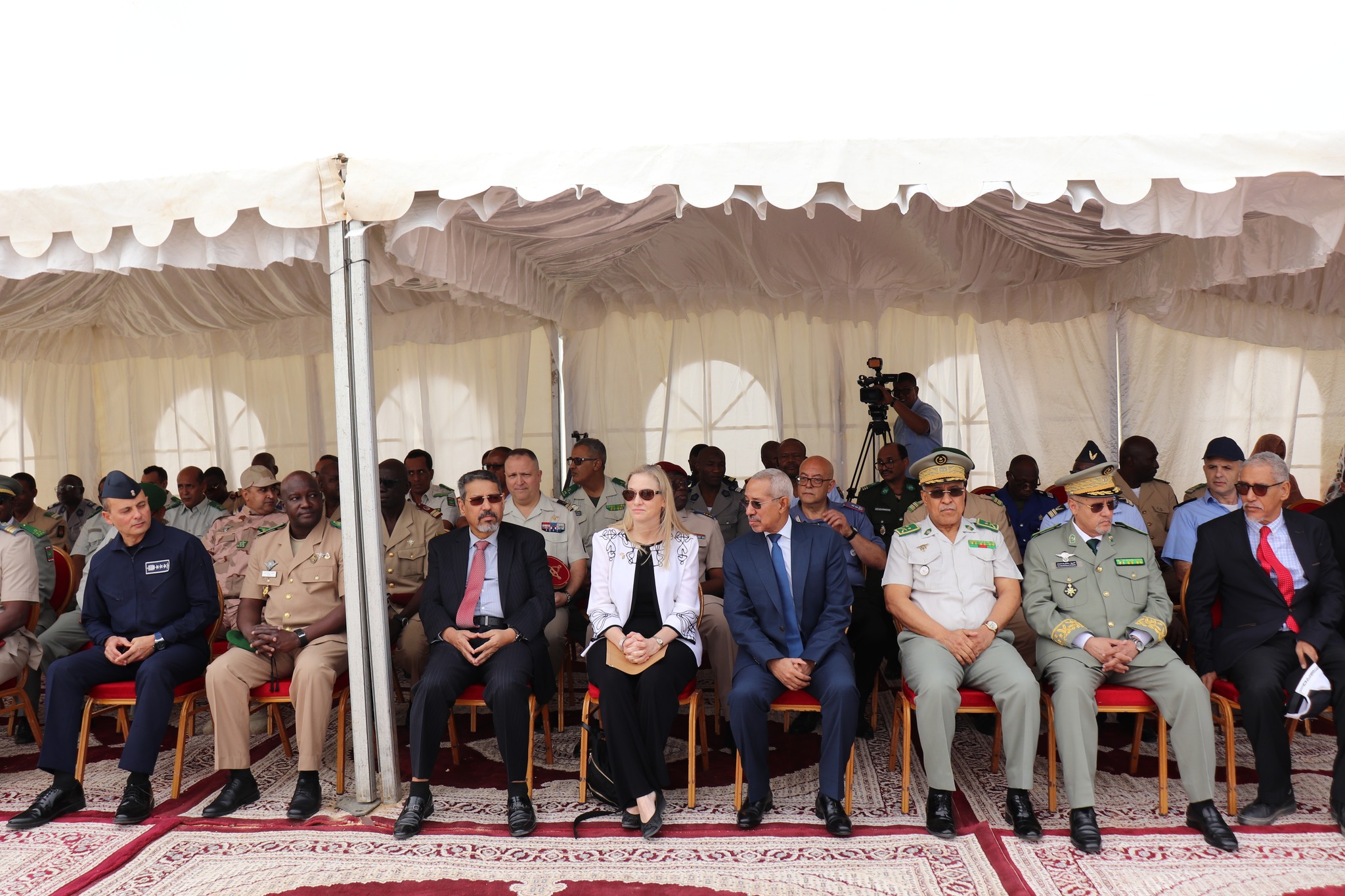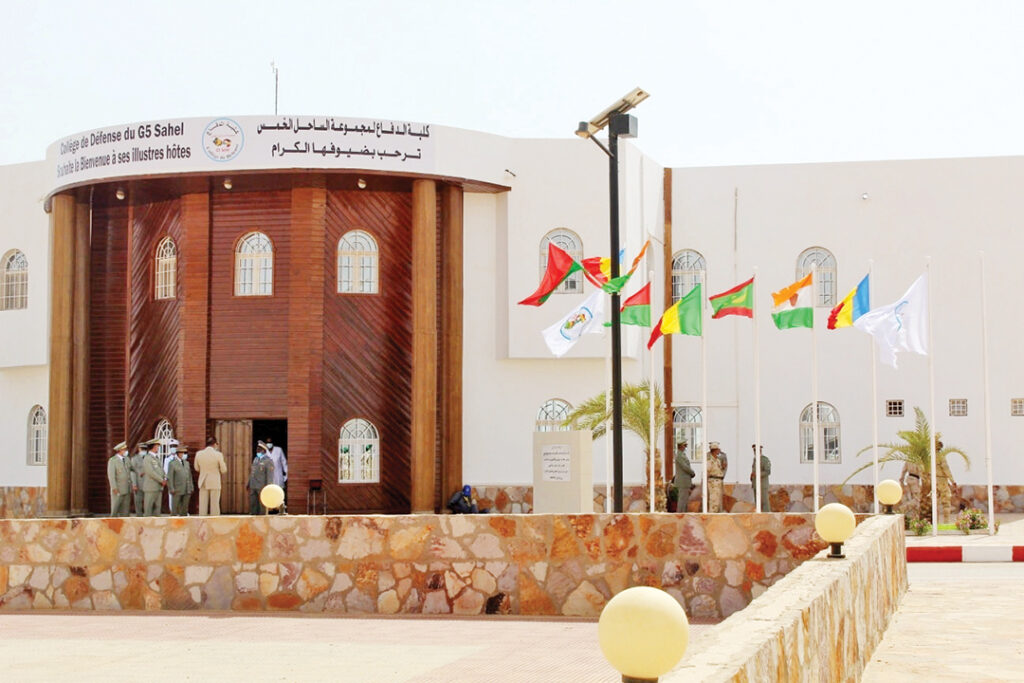ADF STAFF
Groundbreaking began on new facilities at the G5 Sahel Defense College on February 14 in Nouakchott, Mauritania. Once complete, the addition will include an expanded library, classroom space, a 20-seat language learning lab, and computers and audio translation equipment. The $5 million project funded by the U.S. government is expected to take one year to complete.
“When it is finished in 2024, the library will provide dedicated space for regional military officers to advance their academic and English skills,” said U.S. Ambassador Cynthia Kierscht. “Equally important, the library will be a physical symbol of two important roles of the college: as a provider of professional military education and as an exporter of regional security. Truly, the library reflects the long and enduring commitment of the United States to work with Mauritania to advance peace and security in the Sahel.”
The G5 Sahel Defense College gets its name from the G5 Sahel, a coalition created in 2014 to respond to regional challenges from a united political security and development perspective. The G5 Sahel consisted of Burkina Faso, Chad, Mali, Mauritania and Niger.
Initially, the defense college was a Mauritanian project that started in 2013. It was intended to be a strictly national institution, but with the rise in terrorist attacks in the Sahel, Mauritanian authorities decided to make it available to the other G5 Sahel countries as well. All five countries were facing the same threats.

In his 2021 report, “The Sahelization of Military Education in Mauritania,” researcher Jean-Loup Samaan credited Mauritania with using military education as an instrument of regional integration. “It also underlines a key assumption: that there could be a Sahelian strategic space with its own security issues, driven by local dynamics,” he wrote.
Samaan said that the original intent of the Mauritanian War School was to train Mauritanian officers who would otherwise rely on programs in Europe or Arab partner countries. “But the establishment of the permanent G5 Sahel secretariat in Nouakchott created an opportunity to support the modernization of the five national armed forces through a rebranded defense college.”
The G5 Sahel Defense College has evolved into a true regional project. It has a simulation center capable of putting trainees in field situations, and is interconnected with the G5 East and West centers with which it can have simultaneous exercises.
The college trains 40 officer cadets from West African armies each year. It is now also open to officers from outside the Sahel.
In 2021, Malian Army Col. Maj. Nana Sangaré became the first woman to graduate from the college, Africanews reported. She was a member of the third class of graduates from the college since its creation.
College officials describe it as “a place of meeting, knowledge and exchanges between all the actors of defense and security of the countries of the G5 Sahel. Complementary to the other structures of the G5 Sahel, it exchanges regularly with them in a spirit of cooperation, sharing of information and general improvement of defense capabilities.”
Brig. Gen. Brahim Vall Cheibani Cheikh Ahmed, director of the college, says it is imperative to gather armed forces executives of the G5 around the same training module.
“The G5 Sahel is based on two pillars, a development pillar and a defense and security pillar,” the general said, as reported by Africanews. “The armies of the G5 countries being confronted with the same threat, it was judicious that the executives who command the forces on the ground underwent the same training and the same vision of the threat, and the same methodological approach, and the same work processes because tomorrow, at the end of the day, they will find themselves in the same theater working to face the same enemy.”
At the 2021 graduation ceremonies at the college, Gen. Daoud Yaya Brahim, the Chadian minister of defense, told the graduates that it was up them, and not foreigners, to solve the problems of the Sahel.
“The G5 Sahel Defense College is a living model that stems from the founding principle of the awareness of our States, which translates into the appropriation of Sahelian problems by the Sahelians themselves,” he said.

